UCEDD Resource Center
Archived Event Materials

8/10/2016
UCEDD Grants Management Series: Maximizing Return on Indirects and Other University Support
Monday, September, 12, 2016, 4:00 p.m. - 5:00 p.m. ET
One commonality centers share is funding; centers all have their core funding and are required to leverage funds. The question is, how do you allocate those funds and maximize relationships with funders to effectively support your center's infrastructure, activities, and development? This discussion forum on "Maximizing Return on Indirects and Other University Support," will provide an opportunity for UCEDD Directors and business managers to engage in open dialogue to inform and support their efforts at their respective UCEDDs.

3/10/2015
2015 New UCEDD Director's Orientation Resources

12/9/2014
Three New Cultural and Linguistic Competency Resources on the URC
The term 'culturally competent', as defined by the Developmental Disabilities Bill of Rights and Assistance Act of 2000 (DD Act), "means services, supports, or other assistance that is conducted or provided in a manner that is responsive to the beliefs, interpersonal styles, attitudes, language, and behaviors of individuals who are receiving the services, supports, or other assistance, and in a manner that has the greatest likelihood of ensuring their maximum participation in the program involved." This page highlights various projects, collaborations, and resources focused on Cultural & Linguistic Competency.
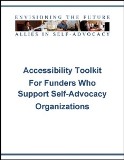
10/9/2014
Accessibility Toolkit For Funders Who Support Self-Advocacy Organizations
This toolkit is designed to help funders who are interested in funding self-advocates and self-advocacy organizations to have a better understanding of how to work best with people with disabilities, and make sure their needs are met throughout the grant process. This toolkit is the result of needs that were identified by the Association of University Centers on Disabilities (AUCD) while providing technical assistance for a self-advocacy pilot grant project that was funded by the Administration on Intellectual and Developmental Disabilities (AIDD)
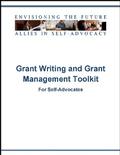
10/9/2014
Grant Writing and Grant Management Toolkit For Self-Advocates
AUCD created this toolkit based on feedback from self-advocates who participated in these Self-Advocacy Organizational Development Grants, who expressed interest in writing grant applications. This toolkit is designed to help more self-advocacy organizations apply for grant in the future.
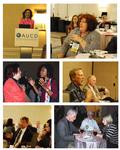
4/4/2014
Event Materials Now Available: 2014 AUCD UCEDD Directors Retreat and AIDD TA Institute
This meeting provided an opportunity for UCEDD leaders to network, meet with their federal project officers, and learn of new initiatives, national trends, and other information vital to the administration of the UCEDD programs.
7/9/2013
2013 New UCEDD Director's Orientation
9/27/2011
UCEDD Director Transitions: Successful Strategies for Supporting UCEDD Staff and Search Committee Members
8/24/2011
2011 New UCEDD Director's Orientation
4/26/2011
2011 ADD TA Institute
4/23/2010
2010 ADD TA Institute
10/16/2009
2009 New UCEDD Director's Orientation
6/3/2009
2009 ADD TA institute
5/1/2008
2008 ADD TA Institute
4/21/2008
NPRM on the DD Act of 2000
12/12/2007
2008 UCEDD Directors Retreat
9/11/2007
FY2008 UCEDD 5-Year Application Webinar
8/8/2007
Developing and Communicating a 5-Year Plan
A targeted TA event being provided under AUCD's TA contract with ADD
5/31/2007
2007 ADD TA Institute
Agenda and meeting materials from ADD TA Institute, May 31-June 1, 2007.
5/11/2006
2006 ADD TA Institute
Agenda and meeting materials from ADD TA Institute, May 11, 2006, and UCEDD Directors Retreat, May 12, 2006.
6/13/2005
UCEDD Directors TA Meeting
Event Materials from the June 13 & 14, 2005, UCEDD Directors Technical Assistance Meetings in Washington, DC.
Resources

Increasing Trainee Survey Responses: Best Practice Methods for Obtaining High Response Rates from Trainees
NOTE (1-31-2020): Since this resource was published, trainee surveys have been revised to a 2, 5, and 10 year timeline. The tips provided here are otherwise still pertinent. Obtaining high trainee response rates to the LEND and UCEDD 1, 5, and 10 year surveys can be difficult for programs to get. To assist Centers in potentially increasing their response rates, AUCD interviewed training directors and former trainees from the 5 UCEDDs and/or LENDs with the consistently highest response rates to understand their strategies for surveying former trainees. This report describes AUCD's interviews and the practices these Centers have found to be successful.
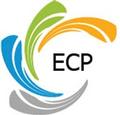
The Importance of Plain Language Summaries for Publications
An Early Career Professionals Guest Blog from Carli Friedman and Kate Caldwell of the University of Illinois at Chicago
In this blog, Kate and Carli share their goal of creating plain language summaries for research publications. This approach to knowledge translation is to break down complex concepts into the most essential form by using plain language and universal design so that the widest possible audience will be able to understand it -- including people with I/DD.
The Theory and Measurement of Self-Determination
Materials and Power Points from the May 15 Mathematica Center for Studying Disability webinar. Materials and Power Points from the May 15 Mathematica Center for Studying Disability webinar. Materials and Power Points from the May 15 Mathematica Center for Studying Disability webinar.
UCEDD Interdisciplinary Training Programs
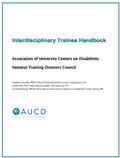
Trainee Handbook
The AUCD Trainee Handbook is intended to be used to support AUCD network trainees with a variety of learning goals. Created by AUCD and members of the National Training Directors Council, this document will provide a consistent approach to accessing information about the network, its history, our federal partners, and the rich resources available to trainees. This handbook is considered a supplement to Trainee Handbooks provided at local programs.

Building a National Agenda for Supporting Families with an Individual with Developmental or Intellectual Disabilities
The report includes as summary of the 2011 Wingspread proceedings as well as concrete recommendations to address the wide range of needs of families. The authors encourage the use of this report to further discussions and action planning, energize grassroots participation, and to encourage collaboration around specific action steps at the local, state and national levels needed to support families.
Resources for Women with Disabilities and Their Health
This resource site offers resource links for women with disabilities to take charge of their health. It also provides health care providers information about how to accommodate women with disabilities and advocate for their right to health care services.

Weighing Decisions about Disability Disclosure - Resources for Youth and Caring Adults
Every young person who grows up with or acquires a disability has to learn how to talk about, or not talk about, his or her disability. As you make the transition into adulthood, the way you talk about your disability begins to change in its importance.

Honing Cultural and Linguistic Competence
A new resource page has been added to the AHRQ Health Care Innovations Exchange: Honing Cultural and Linguistic Competence. This page features innovative programs and quality tools for improving cultural and linguistic competence as well as reducing health care disparities for vulnerable populations, including racial and ethnic minorities.
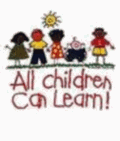
Preparing General Education Teachers to Improve Outcomes for Students With Disabilities
The American Association of Colleges for Teacher Education and the National Center for Learning Disabilities have jointly released this policy brief on preparing general education teachers to improve outcomes for students with disabilities.

Ready and Able: Addressing Labor Market Needs and Building Productive Careers for People with Disabilities Through Collaborative Approaches
People with disabilities can work and want to work. Increasing the employment of people with disabilities produces significant benefits to the economy, the nation, and people with disabilities themselves. This resource is the product of research with the goal to identify successful elements of strategies and offer lessons that can be learned by employers and employer organizations, workforce development and disability service organizations, and federal, state, and local policymakers.

Designing Positive Behavior Support Plans
Read this step by step and concise reference for school teams, providers, students, and parents to understand, design, and evaluate positive behavior support plans for students with developmental disabilities

Positive Behavior Support Training Curriculum (Second edition)
This proven Curriculum is designed to teach direct support professionals the principles of positive behavior support while working with people with developmental disabilities
Shouldn't School Be Safe?
A guide for parents on prevention, detection and response to restraint, seclusion or other aversive interventions.

Camps for Children with Special Needs
This resource is a quick connect to camps and summer opportunities. Some of the listings identify camps available to all children, while some are especially for children who have disabilities.
Oral Health Fact Sheets for Dental, Medical, Parents and Caregivers of Children with Autism Spectrum Disorder
Fact sheets for 14 mild to moderate manifestations of special needs conditions have been developed for Dental Professionals, Medical Professionals & Parents and Caregivers. Content for the fact sheets were developed by a group of experts affiliated with the University of Washington and the Washington State Department of Health - Oral Health Program. These three facts sheets are specific to children with ASD.
Tapping into the Power of Families: How Families of Youth with Disabilities Can Assist in Job Search and Retention
This InfoBrief explores the important role families and other caring adults play in the career planning, job search, and job retention of youth with disabilities.
Women be Healthy
Women be Healthy can be used to enable women with developmental and intellectual disabilities to be more active participants in health care. The curriculum emphasis is on health education, relaxation techniques for health exams, and assertiveness and empowerment training
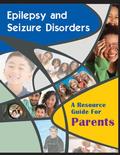
Epilepsy and Seizure Disorders: A Resource Guide for Parents
The guide provides parents and caregivers with information and tools they can use to better understand and manage their child's seizure disorder. Topics include understanding epilepsy / seizure disorders, health care access to services, advocacy and support and tools to aid in organizing health information.
Rising Expectations: The Developmental Disabilities Act Revisited
Published by the National Council on Disabilities, this report describes a year-long study of the State DD Councils, P&A's, UCEDDs and Projects of National Significance authorized under the DD ACT. The favorable evaluation also contains recommendations for each of the programs and ADD.
Disability History Guide: From the National Consortium on Leadership and Disability for Youth
Primarily for youth and emerging leaders with disabilities, this guide is can be used by anyone to assist those with and without disabilities to learn about the rich history of people with disabilities.
FPG Snapshot: How Does Fragile X Syndrome Affect Speech and Language Skills?
Under Arrest-Understanding the Criminal Justice Process in Pennsylvania, a DVD and Companion Informational Guide
Vanderbilt Kennedy Center (TN UCEDD) Produces Tips and Fact Sheets on a Variety of Disability-related Topics
CAC Orientation Curriculum: español puertorriqueño Spanish Language Version
Champions for Inclusive Communities e-Newsletter
ABCs of ADRCs Replication Manual
Family Supports and Services in Early Intervention: A Bold Vision. New article in Journal of Early Intervention by Anne Turnbull et al.

MRDD Research Reviews Journal special issue: Families of children with developmental disabilities
DOJ on-line course on reaching the disability market
Use of Telemedicine to Meet Children's Health Care Needs
CAC Orientation Curriculum: español de mexicano Spanish Language Version
CAC Orientation Curriculum: Plain Text Version
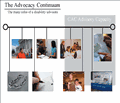
CAC Orientation Curriculum
This curriculum is intended to provide UCEDDs with resources that will assist in the orientation of members of their CAC. The curriculum is meant for use by a CAC leader and/or UCEDD staff/Director to employ with potential, new, or existing CAC members as a way to introduce them to their role in advising the UCEDD. The curriculum consists of 5 modules, each containing slides and an instructor's manual, along with a number of useful appendices. The curriculum has been deliberately designed to be customizable by each UCEDD.
Economics of Disability Curriculum
UAP Self-Assessment Check List
ADA and Accessible IT Materials: Spanish
The Great Lakes ADA and Accessible IT Center is pleased to announce that the US Department of Justice has expanded the number of documents available on their web site which have been translated in Spanish.
Developmental Disabilities Assistance and Bill of Rights Act (P.L. 106-402)
"An Act to improve service systems for individuals with developmental disabilities..."
Attachment C: Definitions and Measures
UCEDD Annual Report Template
Resources for Immigrants Displaced by Hurricane Katrina
Disaster assistance is available to "qualified" immigrants, which includes lawful permanent residents, refugees, asylees, Cuban-Haitian entrants, and battered spouses and children. Unauthorized immigrants and non-immigrant workers (also known as temporary workers) are eligible for non-cash, in kind emergency disaster relief such as food and shelter, search and rescue and emergency medical care.
Perceptions of Disabilities in Diverse Cultures
A conference call with the network presented by Rooshey Hasnain, Ed.D., from the Institute for Community Inclusion (UCEDD) at the University of Massachusetts Boston on March 30, 2005.







